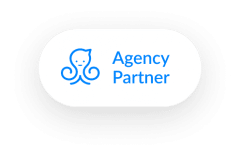Since the creation of Facebook Group, guidelines for its use have constantly been updated or in many cases, new rules were created. At first glance, some of these rules may seem too restrictive, but in reality, majority of these are just common sense.
Many Group users abuse this free platform to gain sketchy benefits. This usually causes conflict, and may result to closing of the group.
Below are some Facebook Group tips you may consider for your brand or business.
Smart Tip #1: Set Your Goals
Before you do anything, you should first understand your reason for starting a Facebook group. Are you doing it for the community? Do you have an advocacy? Is it because you love to connect with people? Do you have common interests? Is it to promote your business?
Smart Tip #2: Select your Privacy Settings
Next, select your privacy settings. Facebook Groups have three privacy options – Public, Closed, and Secret. If your group is “Public”, anyone can find the group, its members and its posts. If it is “Closed”, anyone can find the group and see who’s in it but only members can see the posts. The “Secret” type of group is when only members can find the group and see the posts. TekWorx usually selects this kind of group when members-only matters need to be discussed. The members would have to be specifically invited to see it. Choosing your privacy setting must be aligned to your original goals of creating the group.
Smart Tip #3: Pin your Group Guidelines
It is very important that groups should have rules and guidelines, otherwise it can become chaotic. Place these guidelines where they can easily be seen, such as at the top of your posts. You can also write it in a Facebook document in the “files” section. After saving, it will automatically create a post, which you can then pin as the top post.
The guidelines may include the following:
- Group background and goals
- Official language/s used in the group
- Guidelines for group members should be based on Facebook’s Community Standards such as the use of authentic profile images. Members should also refrain from business or social solicitation such as spamming, excessive selling and promotional activities.
- Include information about your group’s resources such as articles, eBooks or videos. To sustain interest, do your best to update this section regularly.
Smart Tip #4: Keep your Conversations Civil
Members should state their opinions without using insults. Respect for another person’s opinion is important. In case of disagreements, members may use links to support their point of view. Personal attacks and bullying should not be tolerated. Likewise, profanities should not be allowed, especially when it is directed to another member.
Smart Tip #5: Write Posts with Great Content
Post a variety of topics and new ideas. This could be motivational quotes, innovations, marketing strategies or simply sharing of information. Open-ended questions encourage engagement. Adding an appealing photo to posts also makes it more interesting. Photos easily send your message across compared to straight, boring texts.
Let your group members share their blog posts or videos. This brings diversity to your group and participation from members. Informational posts are acceptable, as long as they are not self-promotional or illegal. Exaggerations and over-posting should not be permitted, including spreading of frauds and disinformation.
Smart Tip #6: Publicize and Network
Discover other groups that have related goals or topics. You may post links in those groups to help people to find you. Hashtags may serve to identify your group and the categories it falls under. You can also strike up a conversation with people in similar groups. Simply tell them about your group, but never add people without their permission, this can be irritating!
Smart Tip #7: Select Responsible Admins
As your group grows larger, managing becomes more challenging. Never underestimate the time needed to run a Facebook group. You can always recruit additional admin support from your group. They can help monitor the member’s interactions and implement the guidelines. But keep it in mind that Admins should not only be broadminded but should also be capable of diplomatically diffusing disagreements. Draw up well-defined admin guidelines to follow and work with. This ensures consistency and impartiality in managing a group.
And last but not the least, be open to suggestions. Constant fine-tuning must be done to manage a group successfully. Always listen to feedbacks. Give your members a chance to contribute ideas for the success of your Facebook group.
So, that’s pretty much it. Which of these Facebook Group tips you’re doing so far for your business?






